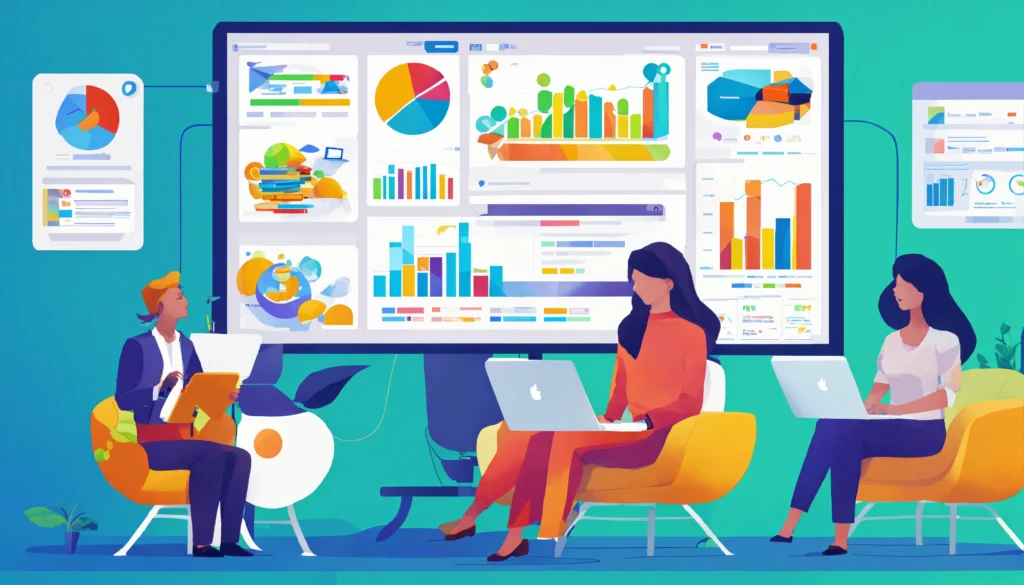Introduction
In today’s competitive business landscape, efficiency and data-driven decision-making are essential for success. Companies must manage customer relationships while ensuring smooth internal operations, making both CRM (Customer Relationship Management) and ERP (Enterprise Resource Planning) indispensable tools. Although they serve different functions, integrating CRM and ERP systems can significantly enhance productivity, reduce costs, and streamline workflow.
For businesses handling complex operations and customer interactions, the integration of these systems ensures that every department operates with a unified data source, enhancing efficiency and collaboration. In this article, we’ll explore how CRM and ERP work together, their individual benefits, the advantages of integration, and best practices for a successful implementation.
Understanding CRM and ERP
What is CRM?
Customer Relationship Management (CRM) systems focus on managing interactions between a business and its customers. A CRM system helps organizations track leads, analyze customer behavior, optimize sales processes, and improve customer service.
- Lead and Opportunity Management: Captures and tracks potential customers to improve conversion rates.
- Customer Interaction Monitoring: Stores communication history for personalized engagement.
- Sales Forecasting: Uses data analytics to predict future trends and revenue.
- Marketing Automation: Helps businesses segment customers and automate marketing campaigns.
- Support & Service Management: Provides tools for effective customer support.
What is ERP?
Enterprise Resource Planning (ERP) systems optimize internal processes by integrating business functions like finance, HR, supply chain, and inventory management into a unified system.
- Financial Management: Streamlines accounting, budgeting, and reporting.
- Inventory Control: Tracks product availability, orders, and distribution.
- Supply Chain Optimization: Ensures smooth logistics and supplier management.
- Human Resource Management: Handles employee records, payroll, and performance tracking.
- Project and Operations Management: Provides visibility into business processes.
The Benefits of CRM & ERP Integration
Enhanced Data Synchronization
One of the biggest advantages of CRM and ERP integration is data synchronization. When customer data from the CRM system is combined with financial and operational data from the ERP system, businesses gain real-time insights into performance, customer preferences, and resource allocation.
Improved Efficiency and Automation
By integrating CRM and ERP, companies reduce manual data entry, eliminate redundancies, and automate workflows. Automated order processing, invoicing, and inventory updates save time and minimize errors.
Better Decision-Making with Unified Insights
A unified system provides executives with a holistic view of customer behavior and business operations. This allows for data-driven decisions that enhance strategic planning, improve forecasting, and drive efficiency.
How CRM & ERP Work Together
Streamlining Business Processes
CRM and ERP integration ensures that sales teams, customer service representatives, and operational departments work in sync. When a customer places an order through the CRM system, the ERP system can instantly process it, update inventory levels, and generate financial reports.
Optimizing Customer Experience
Businesses using integrated systems can deliver more personalized service. For example, customer purchase history stored in the CRM can be linked to inventory records in the ERP, allowing businesses to recommend relevant products or solutions.
Best Practices for CRM & ERP Integration
- Choose Compatible Systems: Ensure the CRM and ERP platforms support seamless data exchange.
- Map Data Properly: Define data fields to prevent inconsistencies during integration.
- Train Employees: Educate teams on using integrated systems efficiently.
- Regularly Maintain the System: Update software and monitor integration performance.
Conclusion
The integration of CRM and ERP offers businesses a powerful advantage by improving data accessibility, workflow efficiency, and customer interactions. By unifying customer relationship management with operational processes, organizations can increase profitability, reduce costs, and enhance overall business performance.




